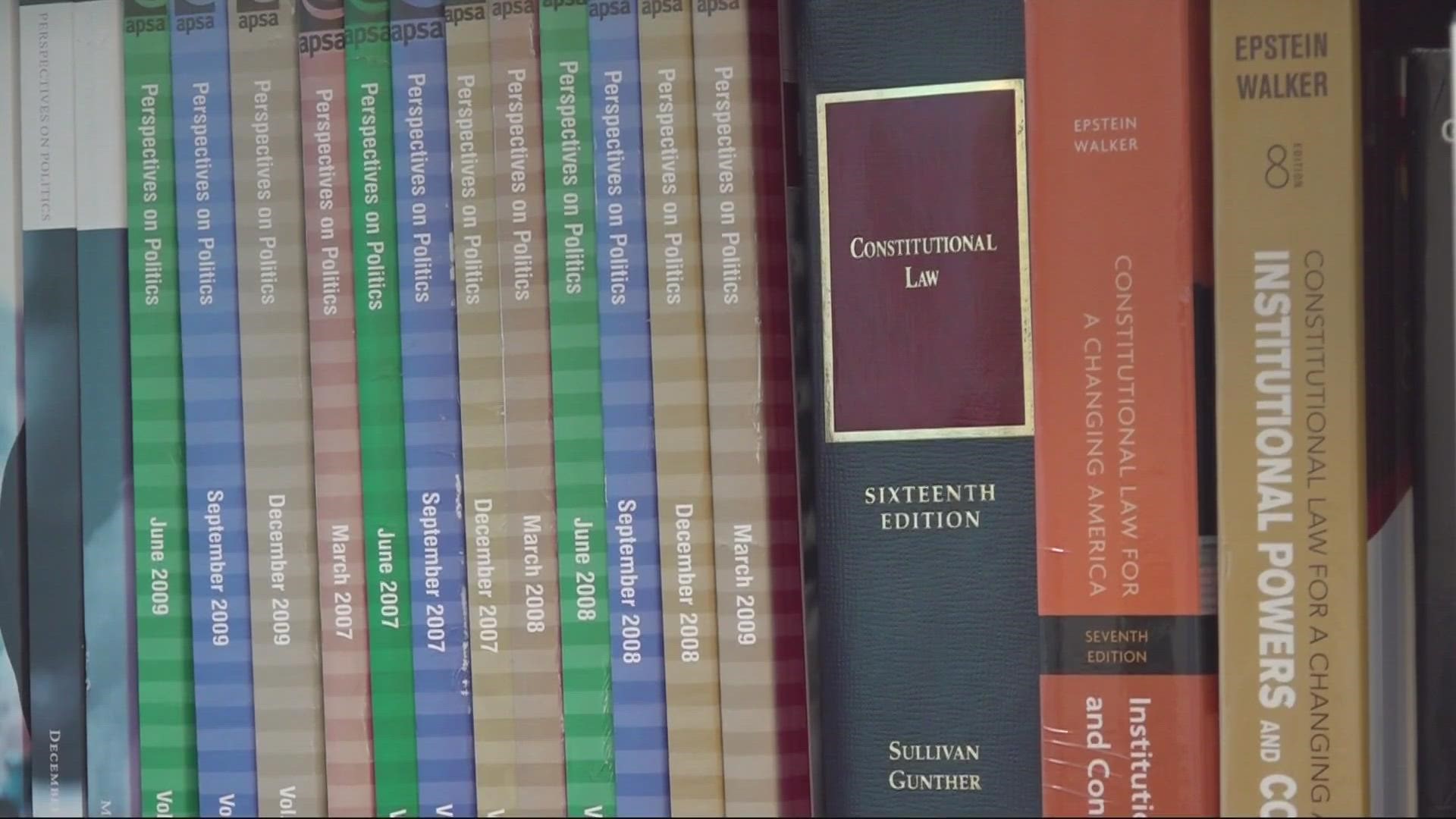JACKSONVILLE, Fla. — Governor Ron DeSantis wants to ban funding of diversity, equity and inclusion programs, critical race theory initiatives, and other "discriminatory initiatives" at higher educational facilities around the state.
The move is raising concerns from one University of North Florida professor who believes this could lead to job cuts and ultimately hurt students. He also claims there's no proof of problems with diversity programs.
"Our state universities are being used as a political football," said Nick Seabrook.
UNF Political Science Professor Nick Seabrook says Governor's DeSantis's Higher Education Reform Bill could lead to major cuts at the University's Office of Diversity and Inclusion. Without the funding, Seabrook says the office's 25 employees are at risk of losing their jobs.
UNF leaders said in a statement the university is reviewing the announcement but had no further comment about the impact it could have.
In a news conference Tuesday, the governor reiterated that Diversity, Equity and Inclusion (DEI) are used to "impose ideological conformity, and to try and promote political activism."
Twenty-eight Florida state colleges, part of the state’s council of presidents, unanimously agreed to end DEI and CRT initiatives by February first, including the Florida State College of Jacksonville and St. Johns River State College.
Florida College System Presidents wrote in a statement that while diversity, equity and inclusion initiatives initially served to help underrepresented populations, "some initiatives and instruction in higher education under the same title have come to mean and accomplish the very opposite and seek to push ideologies such as critical race theory and its related tenets."
Conservative Activist Christopher Rufo, who the governor appointed to the New College of Florida's Board of Trustees, echoed this sentiment in the Tuesday press conference.
"Diversity, equity and inclusion, that sounds great," Rufo said. "Include a wide range of people, treat people equally and make sure that people of a variety of backgrounds feel included, but this is a lie. It is an Orwellian misuse of language that manipulates you into feeling that this is a good thing, while under the surface it's something quite different."
First Coast News reached out to the governor's office asking if his team conducted any studies or surveys that would show the need for reform and if not, what evidence is he basing his decision off of. First Coast News is awaiting a response.
Seabrook says for many colleges, there is no proof of any problem with DEI programs. He claims a survey last year did not document the problem the governor claims exists.
"On that survey, less than one percent of the students at Florida's public colleges and universities even bothered to respond," Seabrook said. "And so you would think if there was a widespread problem here, if there were large numbers of students who felt uncomfortable, expressing their views, who felt that they were being discriminated against based on their political beliefs, those students would at least have responded to the survey."
Seabrook knows what he would like to see happen instead of the proposed defunding.
"What I like to see the state do is take a step back and actually spend some time at this university in these classrooms, collect more data, collect more information and first try to identify if there's actually a problem here," Seabrook said.
This is just a proposal right now meant for the 2023 the legislation session.

